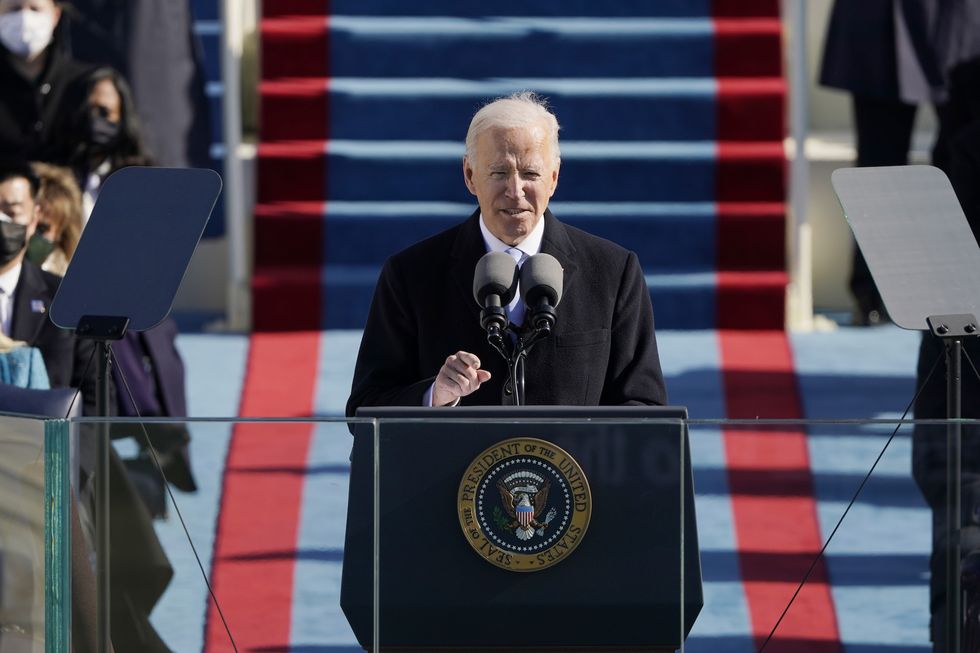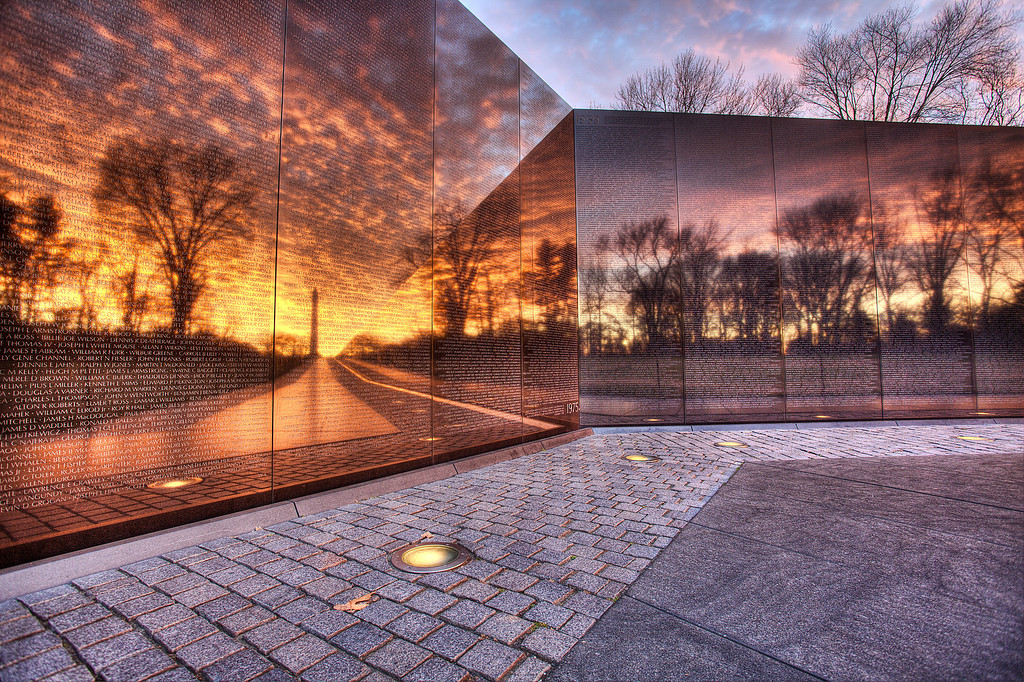The Daily Escape:

At the mansion of Wrong, it was champagne and sushi as we tuned in to the Biden inauguration.
The day’s biggest upside was that the world’s hollowest man wasn’t on the stage with Biden. We’re experiencing the most refreshing moment in America in at least four years, and everyone should celebrate.
Watching it was far more emotional than Wrongo expected it to be. We’ve all suddenly realized how much of a weight we have been carrying around for the past four years. It’s a kind of PTSD that every citizen shared. Suddenly, we feel light, thinking that just maybe, all things are possible again.
All of the speakers hit on the theme of unity for the American people. Biden’s words were on point. He didn’t lay out a series of promises, or a legislative agenda. Instead, he spoke of the challenge of figuring out how to work together again in support of common goals, and the need to disavow the recent past: (emphasis by Wrongo)
“This is democracy’s day, a day of history and hope, of renewal and resolve. Through a crucible for the ages, America has been tested anew. And America has risen to the challenge. Today we celebrate the triumph, not of a candidate, but of a cause, the cause of democracy. The people, the will of the people, has been heard, and the will of the people has been heeded. We’ve learned again that democracy is precious. Democracy is fragile. And at this hour, my friends, democracy has prevailed. So now, on this hallowed ground, where just a few days ago violence sought to shake the Capitol’s very foundation, we come together as one nation under God, indivisible, to carry out the peaceful transfer of power as we have for more than two centuries. As we look ahead in our uniquely American way, restless, bold, optimistic, and set our sights on the nation we know we can be and we must be.”
Biden also made it clear that democracy was attacked:
“We face an attack on our democracy and on truth. A raging virus, growing inequity, the sting of systemic racism, a climate in crisis. America’s role in the world. Any one of these would be enough to challenge us in profound ways. But the fact is, we face them all at once. Presenting this nation with one of the gravest responsibilities we’ve had. Now we’re going to be tested.”
And more:
“And here we stand, just days after a riotous mob thought they could use violence to silence the will of the people, to stop the work of our democracy, to drive us from this sacred ground. It did not happen. It will never happen. Not today. Not tomorrow. Not ever.”
We can’t know what the future holds, but today, one thing is clear: we’re not taking a dark and foreboding look into the future, despite the many daunting challenges ahead of us.
At least momentarily, things feel positive, including that some Republicans may be willing to work WITH Biden instead of only working to stymie him at every opportunity. After the dark nightmare of the past four years, suddenly, it again all feels like it is possible for progress to happen.
The highlight for Wrongo and Ms. Right was the poet Amanda Gorman, a 22 year old from California who has an incredible gift, and immense charisma. The WaPo’s Olivier Knox interviewed Amanda Gorman. He asked her what her first political memory was:
“When I was really young, my mother would read me my Miranda Rights and make sure I knew them. My mom was not playing around.”
We will never truly understand how difficult it must be to grow up in America as a Black woman with a speech impediment. During her reading, Gorman wore a ring with a caged bird, a gift from Oprah for the occasion and tribute to symbolize Maya Angelou, a previous inaugural poet. Here are excerpts from Gorman’s inaugural poem, “The Hill We Climb”:
“When day comes we ask ourselves,
Where can we find light in this never-ending shade?
The loss we carry,
A sea we must wade
We’ve braved the belly of the beast
We’ve learned that quiet isn’t always peace
And the norms and notions
Of what just is…
Isn’t always just-ice
And so we lift our gazes, not to what stands between us, but what stands before us.
We close the divide because we know to put our future first
We must first put our differences aside.
We will not march back to what was, but move to what shall be.
A country that is bruised, but whole. Benevolent, but bold. Fierce and free.
We will not be turned around or interrupted by intimidation,
Because we know our inaction and inertia will be the inheritance of the next generation.
We will raise this wounded world into a wondrous one….For there is always light, if only we’re brave enough to see it. If only we’re brave enough to be it.”
Today is a day to celebrate. It seems likely that soon, people will look back on today as the beginning of something.
Just what that something will end up being, is up to us.

